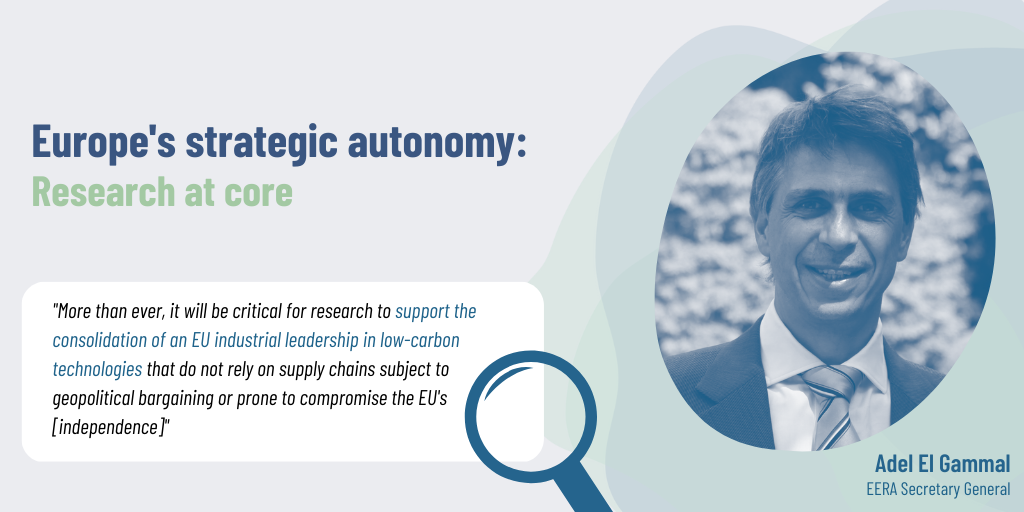March 2023's Newsletter Editorial - by Adel El Gammal
 Adel El Gammal quote
Adel El Gammal quote
Thirty years ago, against the backdrop of the collapse of the Soviet Union, the political economist Francis Fukuyama wrote "The End of History and the Last Man" (1992), an essay in which he proposed that the wide-reaching spread of liberal democracies and free-market capitalism in the West was signalling the end of sociocultural evolution and political struggle, and would become the final form of human society.
This essay would sound now just like a farce should the course of history be less dramatic. As a counter reference, should we now perhaps herald "The Return of History", as a reference to the brutal return of hard physical and economic borders, as well as the crystallisation of economic, ideologic and systemic rivalries which, after the creeping generalisation of its hybrid forms, has eventually brought back a full military war in Europe.
The European Union finds itself suddenly and particularly at odds with this new course of history: a Union conceived and developed on the promises of a generalised seamless democratic world run by increasingly borderless economic exchanges. With no army, it has long banned protectionist policies, and its economy relies on many imported intermediate goods and critical raw materials.
In this context, REPowerEU, which emerged as the urgent, bold EU response to the Russian invasion of Ukraine, calls, for instance, for tripling the installed base of solar photovoltaic panels in just seven years. But 90% of the critical components of this technology are manufactured in China, a country EU also names an "economic competitor and a systemic rival".
Similar challenges also exist for other technologies, such as wind technology, another REPowerEU pillar: it heavily relies on rare earth, a class of materials with magnetic properties of which 98% is imported from China, which alone owns nearly 90% of the world's production.
Strategic autonomy has therefore emerged with renewed force and is increasingly heard in the EU's official discourse. A rather broad and multifaceted notion, it draws on the idea that the EU's strategic, political, and socio-economic choices should not be constrained by the bloc's geopolitical dependencies.
The so-called clean energy transition has become one of the top priorities around which the strategy of the Union is outlined. But for it to reinforce the EU's strategic autonomy will require a deep and widespread redesign of its economic and industrial orientations.
In light of these facts, the research community is called to play a decisive role in defining the optimal transition pathways and designing the new generations of low-carbon technologies which can be sourced and produced in Europe or, at least, in the reputedly reliable partnering countries.
More than ever, it will be critical for research to support the consolidation of an EU industrial leadership in low-carbon technologies that do not rely on supply chains subject to geopolitical bargaining or prone to compromise the EU's independent quest for a socially just, environmentally sustainable, and ethically uncompromised future.
This week, in a powerful demonstration of its revitalised ambitions, the European Commission comes from releasing its proposal to reform the EU's electricity market design. Later in the week, it will also announce the Net Zero Industry Act and the Critical Raw Materials Act. Perfectly illustrating the paradigm shift at work, they instantiate both the new playground and the new challenges ahead for the European research and innovation powerhouse to thrive.
Already heralded in its latest flagship report, the EERA Manifesto on REPowerEU, the global EERA energy research community recognises the shifting nature of challenges ahead and stands firm to deliver on the promises of a fair, independent and sustainable Europe.